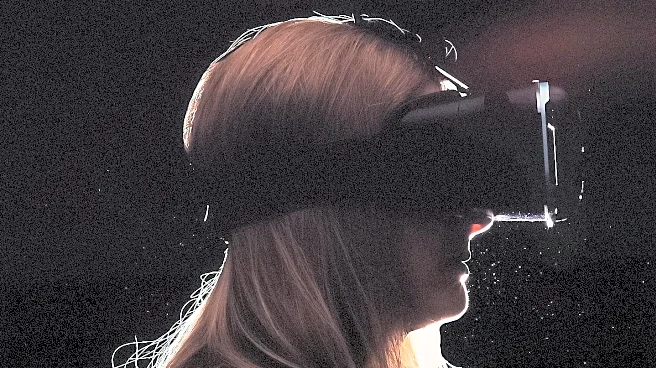What is the story about?
What's Happening?
A hospital in Manchester has introduced virtual reality (VR) as a form of distraction therapy for children undergoing cancer treatment. The initiative, first implemented at The Christie hospital in 2024, aims to reduce anxiety associated with radiotherapy and other clinical procedures. Six-year-old Coby, diagnosed with a rare form of kidney cancer, has been using a VR headset during his treatments, which has significantly alleviated his fear. The VR experience transports children to various environments, such as space or underwater, providing a comforting distraction from the clinical setting. Health play specialist Penelope Hart-Spencer noted that the VR headset offers a different focus, helping children avoid the intimidating sight of medical machinery.
Why It's Important?
The use of VR in medical settings represents a significant advancement in pediatric care, particularly for children facing the daunting experience of cancer treatment. By reducing anxiety and fear, VR can improve the overall treatment experience, potentially leading to better compliance and outcomes. This approach highlights the growing role of technology in healthcare, offering innovative solutions to enhance patient comfort and mental well-being. If successful, this program could be expanded to other hospitals, providing widespread benefits to young patients across the region.
What's Next?
The Christie hospital is conducting a two-year project to evaluate the effectiveness of VR in reducing treatment-related anxiety. If the results are positive, the program may be extended to other cancer hospitals in the northwest of England. This expansion could lead to broader adoption of VR technology in pediatric oncology, setting a precedent for its use in other medical fields. Stakeholders, including healthcare providers and technology developers, will likely monitor the outcomes closely to assess the potential for wider implementation.
Beyond the Headlines
The integration of VR in healthcare raises ethical and practical considerations, such as ensuring equitable access to technology and addressing potential dependency on virtual environments. Long-term, this development could influence how medical treatments are perceived and experienced, shifting focus from purely clinical approaches to more holistic, patient-centered care. It also underscores the importance of interdisciplinary collaboration between healthcare professionals and technology experts to innovate patient care solutions.
















